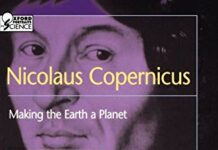
Ebook Info
- Published: 2006
- Number of pages: 160 pages
- Format: PDF
- File Size: 4.23 MB
- Authors: Owen Gingerich
Description
We live in a universe with a very long history, a vast cosmos where things are being worked out over unimaginably long ages. Stars and galaxies have formed, and elements come forth from great stellar cauldrons. The necessary elements are present, the environment is fit for life, and slowly life forms have populated the earth. Are the creative forces purposeful, and in fact divine? Owen Gingerich believes in a universe of intention and purpose. We can at least conjecture that we are part of that purpose and have just enough freedom that conscience and responsibility may be part of the mix. They may even be the reason that pain and suffering are present in the world. The universe might actually be comprehensible.Taking Johannes Kepler as his guide, Gingerich argues that an individual can be both a creative scientist and a believer in divine design–that indeed the very motivation for scientific research can derive from a desire to trace God’s handiwork. The scientist with theistic metaphysics will approach laboratory problems much the same as does his atheistic colleague across the hall. Both are likely to view the astonishing adaptations in nature with a sense of surprise, wonder, and mystery. In God’s Universe Gingerich carves out “a theistic space” from which it is possible to contemplate a universe where God plays an interactive role, unnoticed yet not excluded by science.
User’s Reviews
Reviews from Amazon users which were colected at the time this book was published on the website:
⭐The three lectures that form the basis of this short book would, if considered strictly as lectures, deserve a six-star rating — they are eloquent, erudite, and moving. They must have been wonderful to hear in person. However, great lectures do not necessarily add up to a great book, especially when they deal with difficult scientific and philosophical subjects such as the ones here. Although “God’s Universe” hints at a worldview that sees God’s majesty in the :fine-tuning” of nature and the grand sweep of the cosmos — a worldview that would reject the idea of an inherent conflict between science and religion — the lectures are too brief and underargued to be really convincing. Readers interested in these subjects would perhaps be better off reading Alvin Plantinga’s “Where the Conflict Really Lies.”
⭐My mother was a Harvard biology professor who told me when I was young “Only stupid people believe in God”My mother was wrong.Owen Gingeritch is a veteran Scientist AND a Christian. he has a very well veted opinion on the relationship between science and Religion, a concept that science is the pursuit of discovering Gods creation a concept that was the norm for most of Man’s existence.And a wonderful discussion of Darwin and some interesting facts about His spirituality!Good short read , Owens related book “God’s Universe” covers the truly remarkable (miraculous) and unexplained aspects of our universe.Both fascinating.
⭐Owen Gingerich, astronomer, historian of science, and Christian whose roots are anabaptist, has written a brief and thoughtful book (originally the Belden Noble lectures) that explores several issues: the possibility of a designed universe, the anthropic principle, the relationship between scientific, metaphysical, and theological propositions, and questions that intrigue but appear to be unanswerable (“why is the universe comprehensible?”). Throughout, Gingerich’s claims are really more suggestions and hypotheses than nailed-down conclusions, and this is loyal to his conviction that metaphysical claims are of a different caliber than scientific ones.Gingerich opens his discussion by reflecting on what he calls the “Copernican Principle” (one, he acknowledges, that would’ve horrified the man after whom it’s named): the standard scientific assumption that there’s nothing special about either humans or earth. The principle is so commonly accepted because of the assumption that it has scientific leverage. But Gingerich wonders if it fits facts on the ground such as the neural makeup of humans or the cosmological finessing that make the universe receptive to life. Ginergich’s main discussion of the anthropic principle is mid-book, pp. 48-59.He explores the relation of natural law to the possibility of design (although he’s no Intelligent Design-er, he does think that the evidence suggests some kind of design), and in a striking simile suggests that the universe is perhaps like a Lego set: there’s no predetermining overarching blueprint, but the interlocking parts are designed. So design is open-ended.Finally, he suggests that scientific naturalism is a necessary method in the sciences, and that metaphysical and theological beliefs need to be kept separate if good science is to be done. He also criticizes–quite rightly, in my estimation–people like Dawkins who, while claiming to be doing science, actually drag in metaphysical claims when they deny the existence of God (of course the same criticism applies to ID advocates). But Gingerich is persuaded that reality allows for “multiple layers of explanation” (p. 72) because it’s what Nancy Cartwright so tellingly calls a “dappled universe,” and that there’s no good reason for an overall privileging of one layer over another.A fine little book. Four and a half stars. Highly recommended.
⭐Christian conversations regarding the compatibility of science and religion must address two questions: What Biblical hermeneutic should be used for Genesis 1 and does current scientific theory preclude theistic belief? In “God’s Universe,” Gingerich addresses the only latter, and his answer is a resounding “no.” This singularity of focus is not a weakness, but potential readers might like to know up front.Gingerich relays the excitement that he has for the mysteries of the universe and how they feed his faith, giving the sense that his faith is not contigent on scientific understanding in any age. He also acknowledges that science does not and cannot offer any formal proof for the existence of God. As a scientist and believer myself, I resonate with his views–as do many of the believing scientists with whom I’m acquainted. This does not necessarily mean that he is correct. Nevertheless, the book is fun and refreshing–read it with the understanding that he will not answer anyone’s every question, but his perspectives are thought provoking and might just increase our appreciation of God’s universe.
⭐It was such a good thought provoking book!
⭐In this little book, Gingerich attempts to answer the “Why” question which physics and astronomy cannot (or will not) attempt to answer. Why are the fundamental constants of nature just “perfect” to support life – pure chance or some hand of intelligence? Physics addresses the “what” and “how” questions nicely – nature as observed is described (the “what”) and interactions are modeled (the “how”). But why do those interactions occur? Quantum Field Theory, for instance, is based (largely) upon creation and destruction operators. They can be described mathematically and used to make sound predictions for experiments. But why does the “operator” operate – causing a creation or destruction of particles or fields? Either it’s because “that’s the way Nature is, by chance” or it’s because there’s an intelligence to Nature. Although, as Gingerich points out, the answer to this question may be beyond scientific investigation, this book makes some good arguments, without resorting to blind faith or because “it is written in a Holy book”.
⭐Brought up in a fundamentalist background the concept of God and chance were never spoken in the same breath. With God nothing was left to chance. Everything was ordained…nothing was left to chance. Yet Owen make a compelling argument to the contrary. Read the book with an open mind.
⭐When atheist and christian can pause and wonder at the magnificent dichotomy of our being able to be amazed by the complexity yet humbled by the possibility of knowing the creator we can “praise God” for a mind and a soul like that of Owen Gingerich.
Keywords
Free Download God’s Universe in PDF format
God’s Universe PDF Free Download
Download God’s Universe 2006 PDF Free
God’s Universe 2006 PDF Free Download
Download God’s Universe PDF
Free Download Ebook God’s Universe

